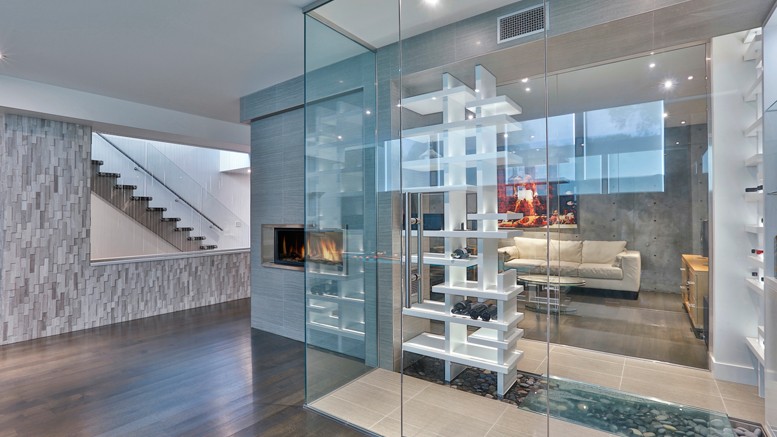Genuwine Cellars, a Winnipeg company that designs and builds custom high-end wine cellars, presented their unique work on campus as part of the University of Manitoba faculty of architecture’s “Food for Thought” series last week.
The series is funded through the faculty’s endowment fund with biweekly cultural events hosted throughout the full year.
During the presentation, faculty and students learned the history of wine cellars, the design process, and a little bit about aging wine.
“I think it relates a lot to what we do in the faculty,” said Brandy O’Reilly, program coordinator of the partners program at the faculty of architecture. “The aspect of that whole design process, which is what we are here to teach our students, is the entire process of design, design thinking, [and] working within budgets.”
Brooklyn Hurst, vice-president of Genuwine Cellars, gave a detailed presentation on the inner workings of the design and building process for the company’s wine cellars.
He presented two case studies and discussed some of the considerations that the future architects might encounter.
“I just want everybody to know that we exist […] in Winnipeg,” said Hurst during his presentation. “We are always looking for A-players, we are always looking for people, designers, and talent to come up on board.”
Genuwine Cellars is the newest member of the faculty’s partners program, which aims to provide opportunities for businesses to engage with students and expose them to the design process while creating research, job, and internship opportunities for students. Currently, there are seven U of M graduates working for the company.
“It’s all about architecture, it’s all about engineering, and it’s all about design,” said Robb Denomme, CEO and co-founder of Genuwine Cellars. “It’s all kind of mixed into one because it has to function […] and how everything comes together, I think you can’t have it without that architecture piece.”
Denomme was not legally able to drink wine when he started his own wine cellar company in 1995.
Denomme was 17 years old when he and his business partner, Lance Kingma, were asked to build a wine cellar in Toronto.
As more people heard about the company, their workload began to increase and for the first three years as a business, their clientele was primarily in Toronto.
“We got a little, tiny, dirty shop,” Denomme said. “It was just the two of us, we had no money and Home Depot tools — we literally had no space and we just started growing.”
The majority of Genuwine Cellar’s custom-made wine cellars are delivered to clients in Montreal, New York, Florida, and California, but they have clients all over the world including China, Switzerland, Scotland, and the United Kingdom. Their work is showcased in private homes, restaurants, and wineries.
The company is involved in every stage of the process, from the initial concept to the design, building, shipment, and installation of the wine cellar. With typically two designers assigned to each job, wine cellars range in size and can hold from 100 bottles up to 40,000 bottles.
With the average wine cellar costing approximately $100,000, the most luxurious projects have often reached a seven-figure price point.
“A million-dollar wine cellar would be nice, it would be super exotic, one of a kind, and it would have a lot of technology,” Denomme said.
This isn’t unusual, according to Denomme. He told the Manitoban that the most prestigious of collectors often protect their collection of wine, beer, or scotch with state-of-the-art equipment, such as retina scans, fingerprint identification, hidden walls, or safe rooms.
“We are dealing with the most current trends [and] designs,” he said. “It’s a luxury lifestyle business.”





